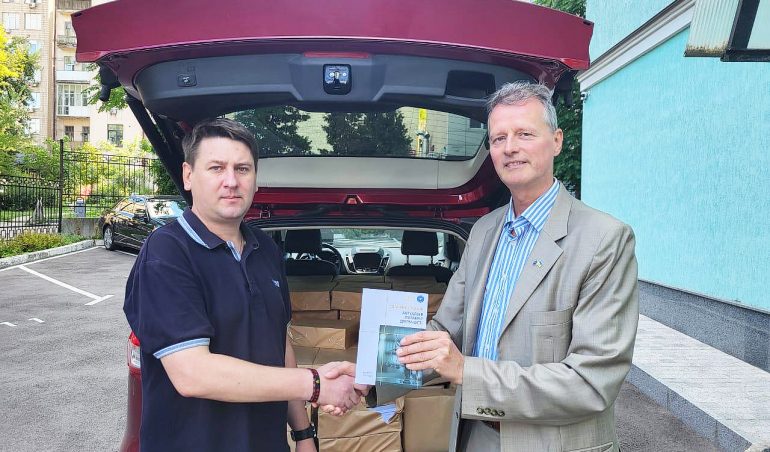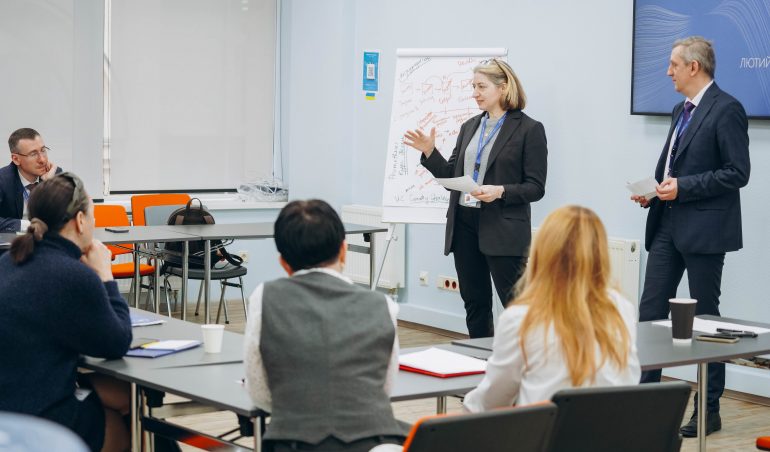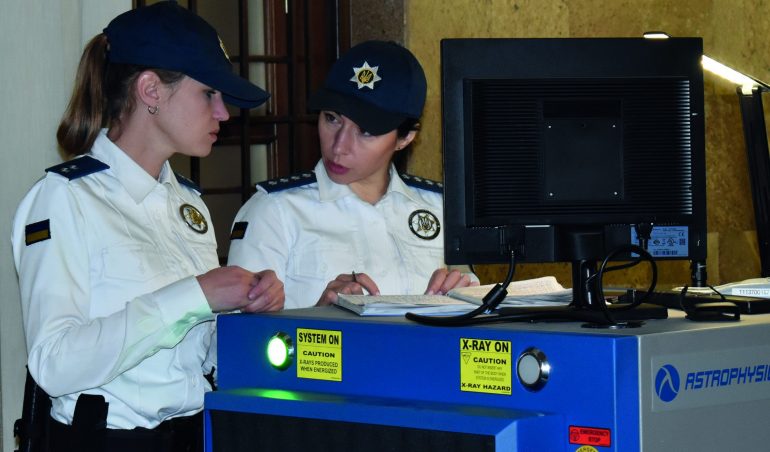DEJURE Foundation fights for ethics and integrity within the judiciary
August 29, 2020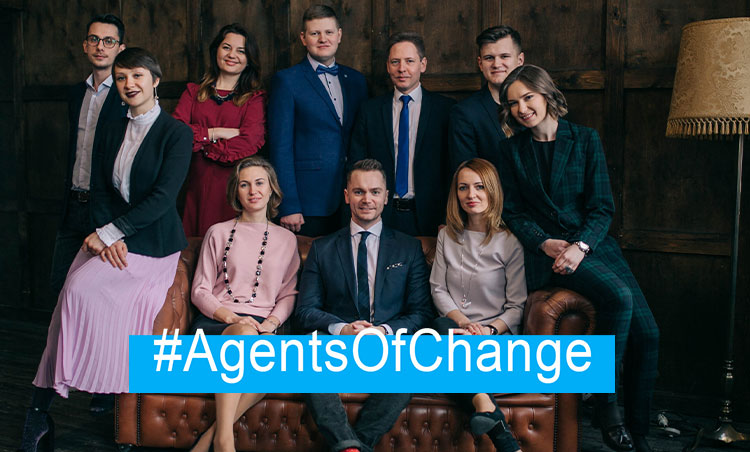
In November 2016, the Ukrainian Parliament passed a new law on the judiciary and the status of judges, establishing a Public Integrity Council (PIC) to support the High Qualifications Commission of Judges (HQCJ) in determining the professional ethics and integrity of candidates for the judgeship. Member and originator of the Council, Mykhailo Zhernakov, is also the founder of the DEJURE Foundation, a civic organisation made up of experts and lawyers who work to promote the rule of law and reforms in the sphere of justice in Ukraine.
Representatives of human rights communities, academic lawyers, advocates or even journalists, the 17 members of the PIC were selected for their high reputations and their political neutrality and integrity. Between 2012 and 2015, Mr. Zhernakov worked as a judge on the Vinnytsya District Administrative Court. After this experience, he decided to move to the other side, the civil society sector, to try to make things change in judicial governance bodies and put an end to a system where “judges always cover up other judges”. Today, one of Ukraine’s most committed #AgentsofChange, he has contributed to the assessment of the judicial integrity of more than 300 judges. Mr Zhernakov here answers a few questions about DEJURE and the PIC.

What does this Latin phrase “De Jure” mean? Why did you choose this name for your Foundation?
Mykhailo Zhernakov: First of fall, “De Jure” is a Latin phrase that means “In accordance with the law”. It refers to all the practices that are legally recognised in law. For our organisation, it is also an acronym. It stands for the words “Democracy Justice Reforms”: this is our vision of the changes needed in the country. We strongly believe that democracy is not possible without justice – which can only be achieved, in Ukraine in particular, through structural reforms. Without achieving justice, it is impossible to have a good sustainable European democracy; which Ukraine tries to be.
What is the story of the DEJURE Foundation?
M.Z.: Back in 2016, when we founded the DEJURE Foundation, we already had been working for a couple of years with experts and colleagues from the civil society sector on judicial reform matters. But we found that there were no NGOs in the country that focused specifically on the judiciary. Some were doing part of it or as a part of their mandate, but not a single one was 100% devoted to trying to fix justice in Ukraine. In our country, change is already happening with effective teams that work together. So we had a vision that we needed to create this team in order to proceed and DEJURE Foundation was created.
We are three founders, each with specific backgrounds: one is a former attorney, the second is a civil society expert and I am a former judge. Together, we have a 360 view of what justice and the judiciary sector in Ukraine is. That helped us develop the organisation that now counts 17 people and that is still growing.
DEJURE Foundation’s work consists of promoting the ‘rule of law’ in Ukraine. How would you define this legal concept?
M.Z.: Rule of law is the system of a state where everybody is equal before the law, where state institutions work in a manner to ensure that we are all equal and that our rights are protected, no matter who is on the opposite side in the court or any other body of state power. That is the underlying concept: we, as persons, have rights and these rights are protected the same no matter who you are – an ordinary man or the president of the country.
What is the role of this Public Integrity Council (PIC) you personally participate in?
M.Z.: The work of the PIC is not linear. It very much depends on what is going on with the judiciary sector (hiring or firing processes) or even the formation of new courts like the Supreme Court or the High Anti-Corruption Court that was created last year. Another big process is still going on: the assessment of all the judges.
“We, as persons, have rights and these rights are protected the same no matter who you are” (Mykhailo Zhernakov)
Usually, we start our investigation by going online and collecting all the information we can find – a lot of registries are now open to all thanks to the anti-corruption reform. We verify and analyse the previous conduct of the judges, their previous background, their assets and other criteria based on international standards. (editor’s note: The Bangalore Principles of Judge Behavior, endorsed by the UN Economic and Social Council resolution of July 27, 2006).
We can quickly see if this information corresponds or not to the criteria of qualification: if the candidates neglected to declare income or property origins or did something bad in terms of ethics or even violated human rights. Then, if a candidate does not meet professional ethics and integrity criteria, the PIC comes up with conclusions that are published on its website and shared with the High Qualifications Commission of Judges of Ukraine (HQCJ).
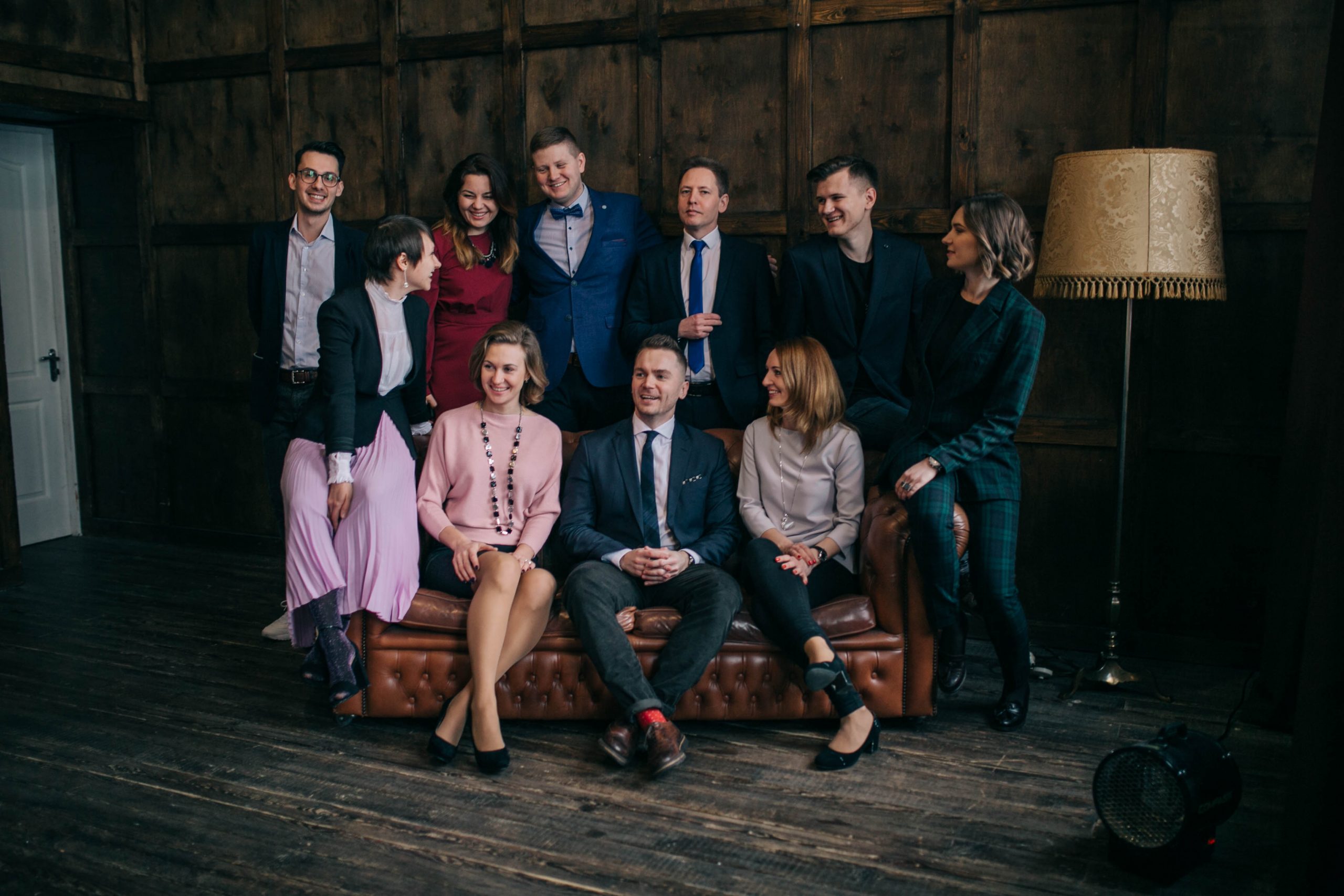
As a representative of civil society, why is it important that you take part in this PIC?
M.Z.: It all started in 2016, when the so-called “big judiciary reform” was beginning, amendments in the Constitution were done regarding the judiciary. We made an ambitious move to change what is happening in the Ukrainian courts. In other countries, such as Western democracies, we know the judges themselves select the candidates for judgeship but also those who will select among them. But this recipe does not work in Ukraine where there are systematic problems with integrity and the professionalism of the judiciary.
We wanted and we had to check every judge whether he or she is fit or not for the job, in terms of integrity and professionalism. But in Ukraine, we could not leave the review of these criteria to the professionals in the judiciary sphere. It turns out other judges were not assessing integrity well enough, maybe because some of them might have had similar background when they were elected. That is why we successfully advocated for the creation of this Public Integrity Council (PIC) to provide an integrity check for each judicial candidate. It now consists of a body 100% made of representatives of civil society. 20 members (journalists, civil society experts, lawyers) who have already assessed around 300 judges in the last four years.
You worked yourself as a judge between 2012 and 2015. According to you, what are the main ethical qualities and skills we should all request from judges?
M.Z.: Well, I do not think it should be according to me. There are international standards for the behaviour and conduct of judges. And since recently, there are finally constitutional requirements of integrity and professionalism for every judge in Ukraine, that the PIC or anybody who is entitled to do so can monitor.
Unfortunately, Ukrainian judiciary bodies are still not fit for objective assessment of judicial independence, integrity and professionalism. Quite often, judges cover up other judges. That is why it is still difficult to reach in Ukraine a high-level of judicial integrity. That is why it is important to reform those bodies to let professionals of high integrity select judges of high integrity.
More personally, I think that the main quality of a judge is his or her integrity. Because if integrity comes first, you can then catch up on knowledge, professionalism, doing training and many other things after.
Since the PIC was established, did you notice any improvement in the qualification assessment of judges?
M.Z.: Unfortunately, the PIC does not have decision-making power for the judge’s career. While we analysed and found a lot of facts regarding judicial integrity, we did not yet yield the expected result. A big number of judges who did not pass our integrity check are still not being dismissed.
“By exposing this information on Ukrainian judges, we are making it more and more uncomfortable for them to engage in illegal activities such as corruption or tax fraud” (Mykhailo Zhernakov)
However, we found a way to get rid at least of some of the most corrupt judges, those who clearly do not correspond to the integrity criteria. Also, by exposing this information on Ukrainian judges, we are making it more and more uncomfortable for them to engage in illegal activities such as corruption or tax fraud. That is why we strongly believe that we still raised the integrity level to a certain extent.
To conclude, what would be your message for citizens who also want to make things change?
M.Z.: My message to pretty much everybody would be: a. know your rights, b. get to know what is happening with the courts and c. believe in yourself but also in your actions, because your actions are what really contribute to the wellbeing of others.
*The views expressed here are the interviewee’s alone and do not necessarily reflect the position of EUAM.


